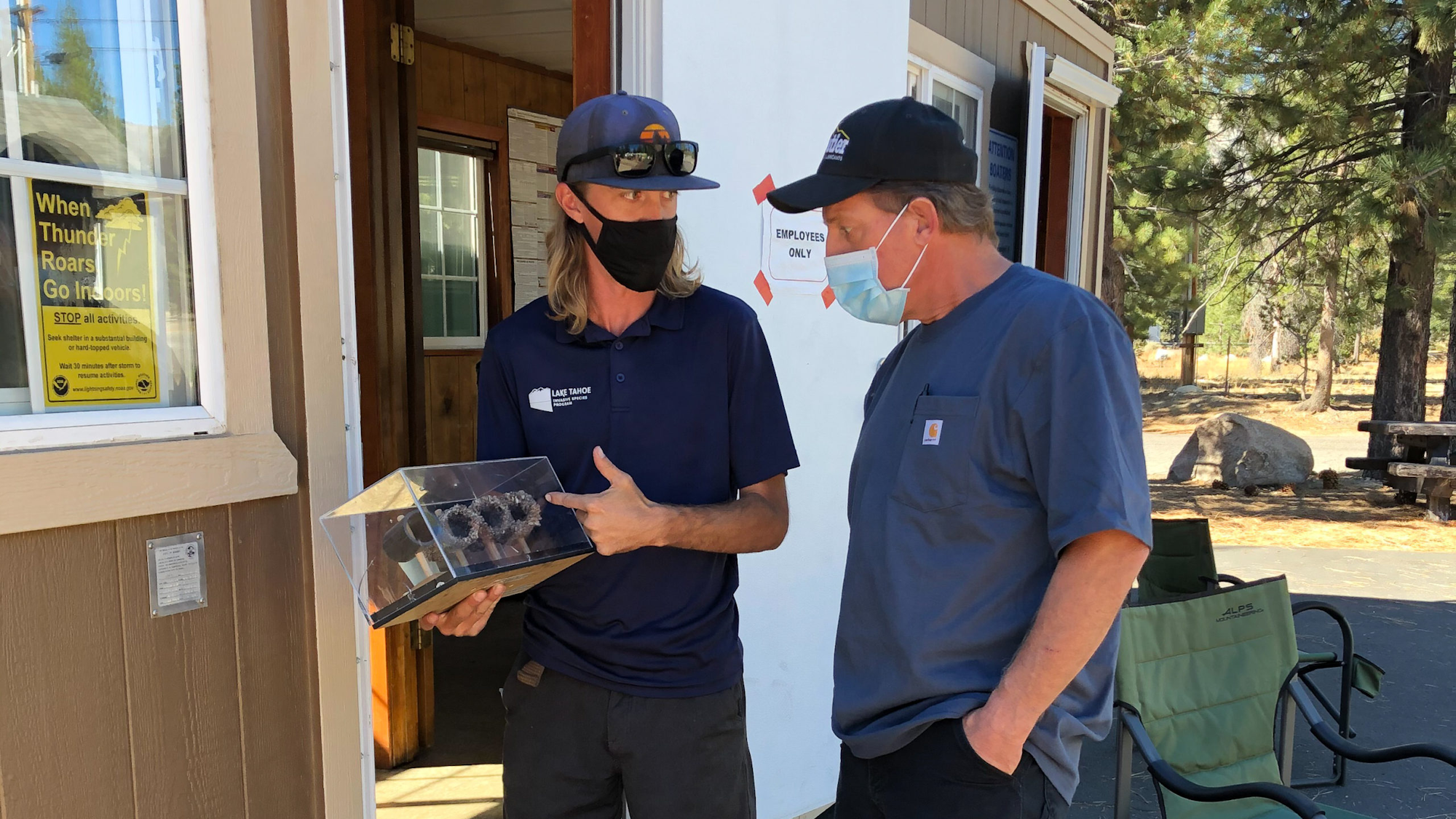Tahoe Boat Inspections
Watercraft are the main pathway for aquatic invasive species (AIS). Mandatory inspections and decontaminations prevent species like quagga mussels from entering Lake Tahoe. Once AIS are established, they are costly and often impossible to remove—Lake Mead spends over $20 million annually fighting quagga mussels. Prevention is far more effective and economical than control.
The most serious threats to streams and lakes in the Lake Tahoe Region are zebra and quagga mussels, New Zealand mudsnails, and hydrilla. Each of these invaders is spread through the transport of water and/or debris that can collect in bilges, cling to outer hulls and rudders and even hide out on your gear.
To learn more about the species that threaten the Lake Tahoe Region, click HERE. If you are a watercraft user in the Lake Tahoe region and would like information on program requirements, please visit TahoeBoatInspections.com.
“The Gold Standard”
In 2007, quagga mussels were identified in Lake Mead, NV. Tahoe RCD, along with partnering agencies, jumped into action to assess the risk that Lake Tahoe faced. In 2008, Tahoe RCD began the first watercraft inspections and surveys for the prevention of AIS in Lake Tahoe. A year later, inspections became mandatory for all motorized vessels through a Tahoe Regional Planning Agency Code of Ordinance. Tahoe RCD partners with other programs nationally and continues to develop technical resources on watercraft decontaminations and inspection protocols used throughout the Western States and Canada.
Tahoe RCD has led the way in the development of proprietary equipment used to decontaminate watercraft faster, more effectively, and more efficiently than ever before. It is for these reasons that the Tahoe Boat Inspection program is frequently referred to as “The Gold Standard.”
By preventing the spread of new invasive species, the Program helps to maintain property values, clean drinking water, clean beaches, recreation, lake clarity and the integrity and beauty of our natural surroundings for future generations.



